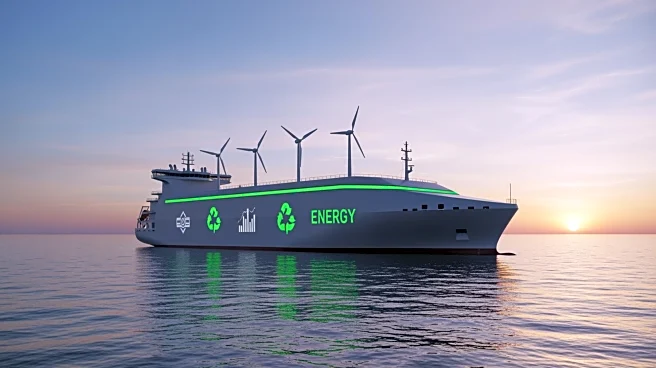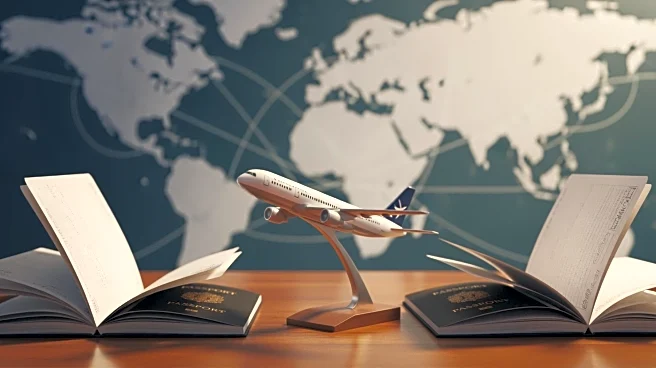What's Happening?
The Neoliner Origin, recognized as the world's largest cargo sailing ship, has successfully completed a transatlantic voyage from France to the United States. The vessel, which primarily relies on wind power, aims to significantly reduce greenhouse gas
emissions by up to 80% compared to traditional diesel-powered ships. Despite sustaining damage during the journey, which necessitated the use of motors, the ship is currently docked in Baltimore for repairs and cargo unloading. The Neoliner Origin is part of a broader initiative to promote sustainable shipping practices, with backing from several French luxury brands, including LVMH, which plans to ship millions of bottles of Hennessy annually using the vessel.
Why It's Important?
The successful voyage of the Neoliner Origin marks a significant step towards reducing the environmental impact of global shipping. Traditional cargo ships contribute substantially to air and water pollution, emitting harmful substances like sulfur oxides and nitrogen oxides. By utilizing wind power, the Neoliner Origin and similar vessels can mitigate these emissions, offering a cleaner alternative for transporting goods. This shift is crucial as industries and governments worldwide seek to address climate change and reduce carbon footprints. The involvement of major brands like LVMH underscores the growing corporate commitment to sustainability, potentially influencing other sectors to adopt greener practices.
What's Next?
Following the initial voyage, Neoline plans to establish a regular shipping route with the Neoliner Origin, including a scheduled inauguration event in Baltimore. The success of this venture could pave the way for the construction and operation of additional sailing cargo ships, further promoting sustainable maritime transport. As the shipping industry faces increasing pressure to decarbonize, the adoption of wind-powered vessels could become more widespread, potentially leading to regulatory changes and increased investment in green shipping technologies.
Beyond the Headlines
The transition to wind-powered shipping not only addresses environmental concerns but also highlights the potential for innovation in traditional industries. The development of such vessels could stimulate economic growth by creating new markets for sustainable technologies and fostering international collaboration. Additionally, the shift may influence public perception and consumer behavior, as more individuals and companies prioritize eco-friendly products and services.














